When we speak of reducing carbon footprint, the spotlight used to be centered upon segregation, recycling, and safe waste disposal technologies. Fast-forward to today — albeit, recent years — and the quest has gone beyond the household. It is admittedly too slow for most people to adapt to sustainable living at a personal level because there are simply too many factors to consider: research, time, resources, and above all, cost. Real talk – the means to clean and green living are not always the most economical for middle-income families.
The answer to this dilemma is a solution that goes for the source, which brings to the table the emergence of electric and hybrid vehicle technology in the automotive sector. Environmental sustainability and governance (ESG) has rapidly gained attention as a point of corporate discussion in many highly-developed and developing countries around the world. At the forefront of this movement is Toyota, the current leader in the electric vehicle space. Not only has the brand established the Toyota Environmental Challenge 2050, which aims to achieve zero CO2 emission and a net positive environmental impact by the year 2050, it was also one of the first to actively introduce a range of hybrid vehicles to the Philippine market to suit the taste and requirement of different market segments.
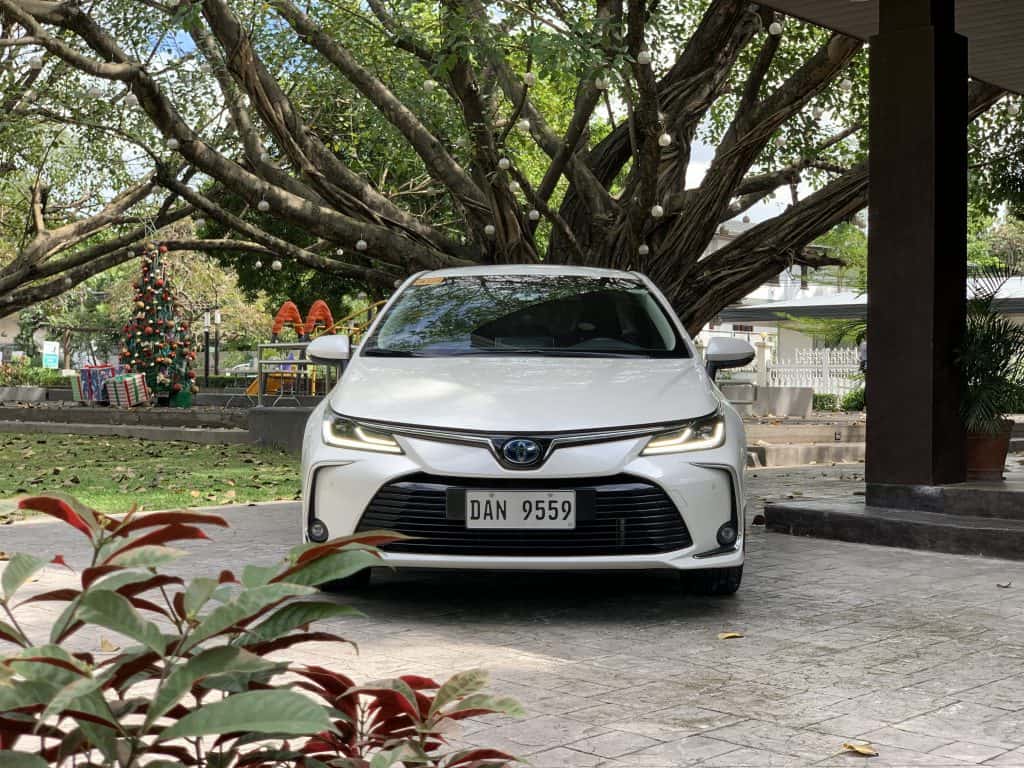
One of Toyota’s latest was the all-new Corolla Altis Hybrid. It arrived dressed to impress and in the striking Platinum White Pearl Mica, with a playfully subtle blue definition in the LED headlight interior. It was every inch a Toyota, designed with the classic silhouette that is recognizable in all of brand’s sedan offerings. The exterior front hood sloped from a generous windshield, ending at a well-proportioned grille and badge. While the overall look was elegant and minimal, the 17-inch wheels added a contrasting sporty aura to the vehicle’s personality.
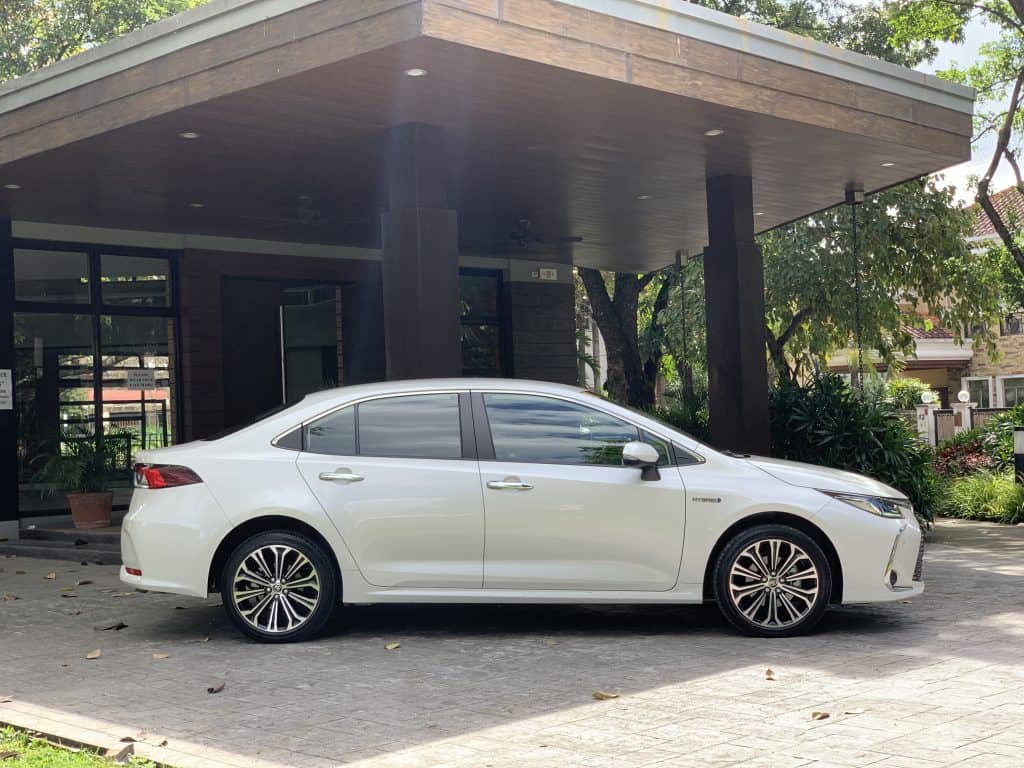
The simplicity and elegance is carried over into the interior. The cabin is nothing short of luxurious, with leather seats for the front and back, an illuminated entry system, and matte black soft touch panels. It also features an easy-to-navigate infotainment system with a heads-up monitor that sits snugly in the center of the dashboard. The controls are familiar and straightforward — nothing fancy or overtly complicated. Passengers can also bet on an extremely comfortable ride, with leather seats having just the right cushioning and support, and wider legroom for the back row.
Aesthetics aside, the highlight of the Corolla Altis Hybrid was, of course, Toyota’s Hybrid Electric Vehicle (HEV) technology. Being an HEV meant that the Corolla Altis Hybrid runs on two power sources: a conventional gasoline engine and an electric motor. The beauty of hybrid technology is that the electric motor is self-charging — no need to plug it in to a separate charger to top up. The electric motor recharges using the combustion engine and by way of a Regenerative Brake System. This system means that every time the brakes are applied, it utilizes kinetic energy to recharge the battery of the electric motor.
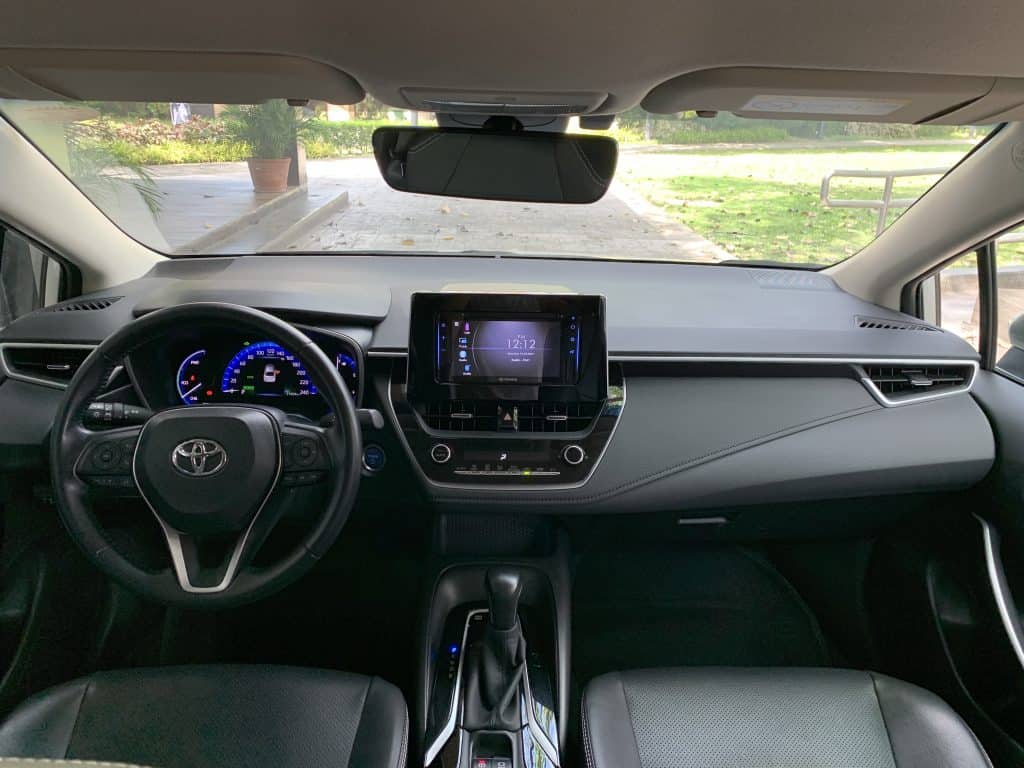
The advantages of Toyota’s HEV technology include reducing CO2 emissions and obtaining higher fuel efficiency. During our time with the Corolla Altis Hybrid, the vehicle tapped out at an impressive 18km per liter of gasoline. With the option to switch to electric power, we can only bet that a full tank of gas will go a long way, considering that the fuel tank can hold up to 43 liters of gas. This adds to long-term savings, in addition to the battery’s five-year warranty, making this hybrid model one of the most economical vehicles to own.
Being a Toyota also meant not skimping on performance, especially when there is age-old reputation to live up to. The Corolla Altis Hybrid starts up quietly — so quietly that you may not even realize that the engine is already running, save for the “Ready” indicator on the dashboard. The motor makes very little noise to none, which allows for a more calming ambiance inside the cabin. However, tap on the accelerator a bit and once you’re going, that’s when you feel the difference. Despite the silence and seemingly off-beat demeanor, the power of the Corolla Altis Hybrid’s 1.8L 4-cylinder engine kicks in, smoothly taking you through the streets with easy maneuverability, reliable stability, and ultra-light suspension. Again, every bit a Toyota.
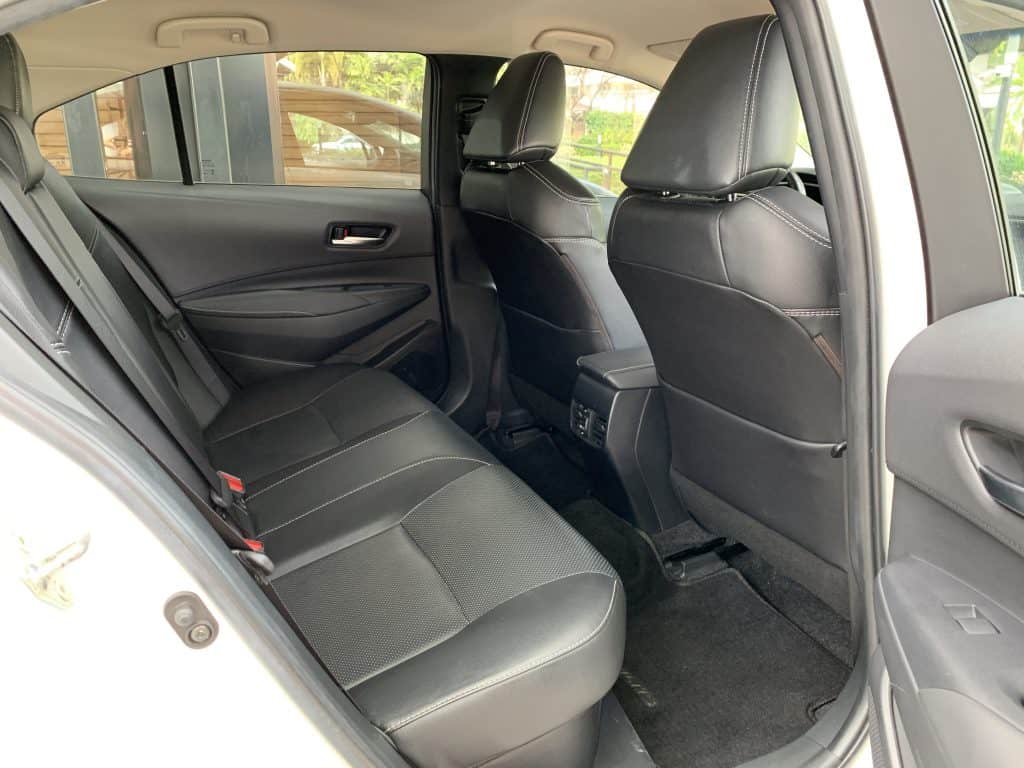
There are two types of buyers for Hybrid Electric Vehicles, or simply Electric Vehicles, for that matter. There is the customer who wants to be among the first to say he swiped his card and is one of the few to have a Hybrid in his garage; the car treated as a novelty, being a rare sighting in the metro. And then there are those who chooses an HEV (or, an EV) simply because it’s the more sensible, economical, and sustainable option.
The purpose for the development of HEV technology is not to follow a trend or start a new fad. The presence of Hybrid Electric Vehicles is a signal that the road to sustainability begins at the grassroots and that it is not limited to luxury vehicles. By being an aggressive, active player in this new field of progress, Toyota paves the way for the mainstream consumer to participate in this movement for change, rooted in its philosophy that mobility — sustainable, at that — should be for all.
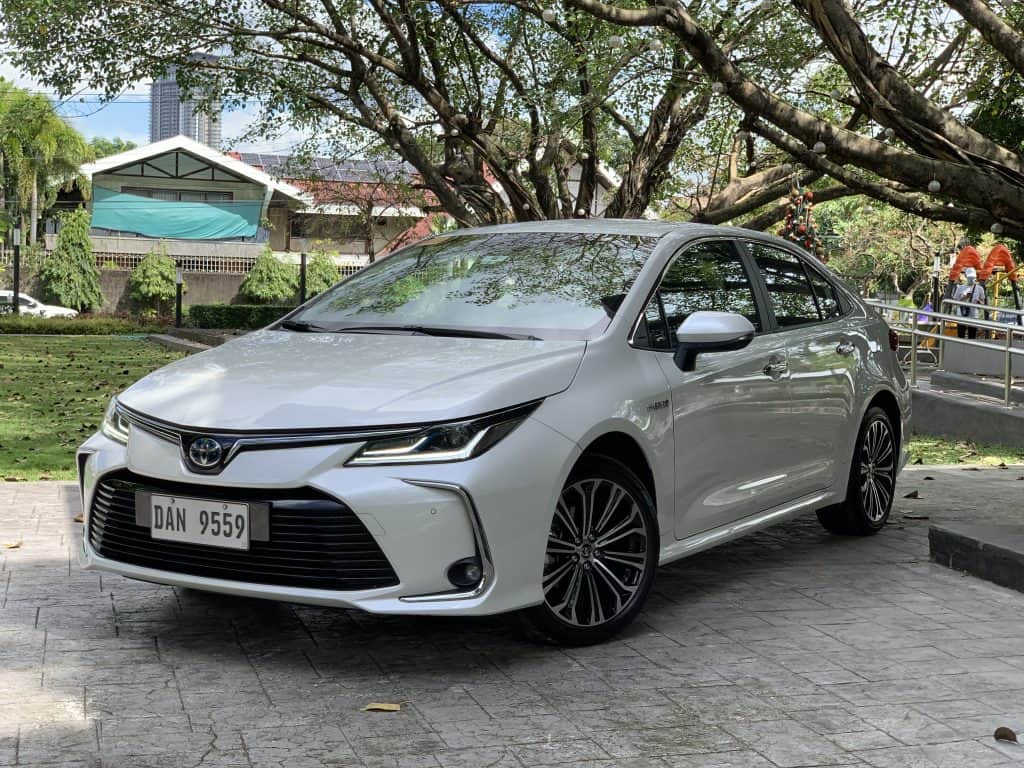
The Toyota Corolla Altis Hybrid, as with all Toyota Hybrids, is the sedan that offers the best of both worlds, for those who believe in working toward a better world. It is a vehicle that is rooted in the brand’s commitment to offering unparalleled environmental performance, while remaining steadfast in its reputation of quality, durability, and reliability.

